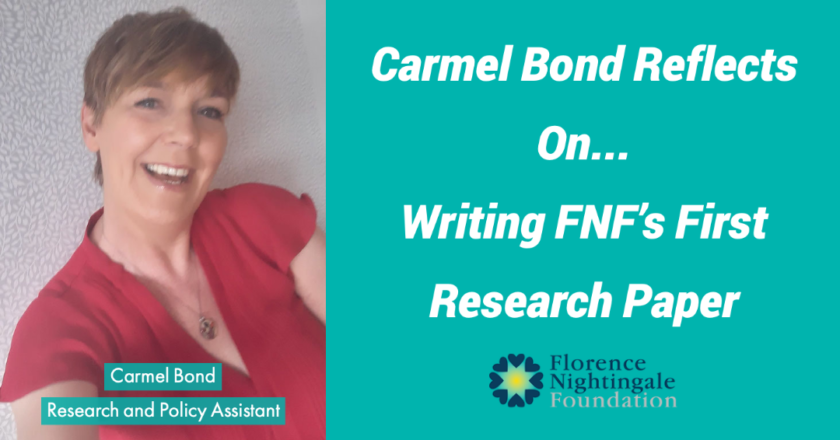
Carmel Bond is Florence Nightingale Foundations Research and Policy Assistant and co-author of the research article. The research article has been published by the RCNi and is open access and available in an Easy Read format.
I am incredibly proud to have produced the Florence Nightingale Foundation’s first piece of published research. This is a new and exciting direction for the Foundation, and I am delighted that we are following in the footsteps of our namesake, Florence Nightingale, who was a key pioneer for using research-based approaches to improve healthcare and patient safety. Through this research, we can shine a light on the valuable contributions Learning Disability Nurses have made to support and protect those in their care during the pandemic.
It was a privilege to listen to my nursing colleagues as they shared their experiences of caring for people with learning disabilities over the past year. From the very first discussion group, the creativity of these nurses really stood out and despite working in difficult circumstances they were keen to share examples of good practice with one another. I found the process incredibly educational and learnt so much about the fascinating field of Learning Disability Nursing, and just how impressively they managed the transformation of services during the first wave of COVID-19.
During the group discussion stage of the research process, one nurse described themselves as being ‘like the Swiss army knives of nursing’, which I think is a fascinating way to think about the wide repertoire of skills that Learning Disability Nurses have. One of the groups talked about their identity as nurses and whether this had changed because of the pandemic. They used the analogy of being like a stick of rock and said, ‘if you cut me in half and looked through the middle, the words Learning Disability would run through the core’. This made me realise how these nurses truly embody what they do, no matter what obstacles they face and ensure that people with learning disabilities remain at the heart of the services provided.
I truly hope that sharing the narratives of Learning Disability Nurses will prompt a wider recognition of their hard work. These incredible nurses have done exactly what Florence would have done; worked together to ensure the needs of the people in their care continued to be met during unprecedented times.
On reflection, I too have followed in Florence’s footsteps, by using my own passion and research skills to produce this research and enable these amazing Learning Disability Nurses to share their experiences. I first started working in nursing over 30 years ago. Returning from my shifts at the hospital, my father would refer to me as his “little Florence Nightingale”. I am sure if he were here today, to see the work I am doing with the Florence Nightingale Foundation, he’d be bursting with pride too.
I want to thank Health Education England for commissioning this piece of research and thank the RCNi for their support during the publishing stage.